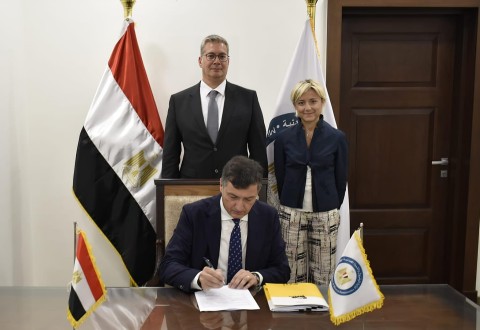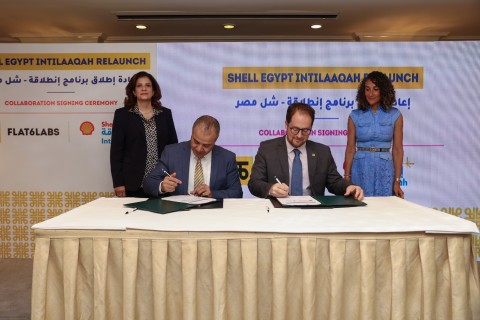By Sarah Samir
The issue discussing domestic versus foreign arbitrations has dominated news in the energy industry in Egypt in the past months. It has become a key conundrum for oil, gas, renewables, and other energy companies that are operating in the country. Foreign energy investors have objected to the requirements by the government to hold all their dispute settlement processes in Egypt. Instead, they requested to have an option to file suits abroad with international arbitration centers, shall there arise any disagreements in the future.
In light of these complicated commercial relationships between investors and the states, it became necessary to ensure unbiased resolution of cases of disagreement. The countries therefore ventured legal frameworks for arbitrations. As a result, almost all companies involved in energy sector and beyond usually conclude arbitration agreements as annexes to their business contracts. As for arbitration in the energy sectors in particular, Managing Partner at El Said Darwish& Partners, Dr. Mohamed Darwish, confirmed in an interview with Egypt Oil&Gas that “almost 100% of oil and gas companies operating in Egypt include arbitration clauses in their agreements.”
Individual models of arbitrations differ from country to country, yet a common denominator is the independence of arbitration awards that are issued unassociated with judicial courts.
Egyptian Arbitration Law
Egypt is not an exception in this regard. The country adopted its Arbitration Law No. 27 back in 1994. It facilitates the conduct and enforcement of international arbitral proceedings between the Egyptian state and involved companies, as well as in between different firms operating in the country.
The law stipulates, according to Article 39, that “the arbitral tribunal shall apply to the substance of the dispute and the rules chosen by the two parties.” This indicate a rather flexibility of the drafting of arbitration agreement based on both involved parties’ preferences. Articles 15 and 17 of the law specify that “the arbitral tribunal consists, by agreement between the parties, of one or more arbitrators,” and that “the two parties to the arbitration may agree on the choice of the arbitrators, and on the method and period of time for affecting their choice.” Lastly, the arbitration agreements must be concluded in writing.
As these articles demonstrate, the Egyptian Arbitration Law thus clearly adopts the rules of the United Nations Commissions on International Trade Law Model (UNCITRAL). It embraces the principles in terms of court interventions. Article 5 defines that “in matters governed by this law, no court shall intervene except where so provided in this law.” However, Article 22 gives an opportunity for judicial intervention if there are objections claiming the non-existence of an arbitration agreement, its extinction, nullity of disputed agreement, or that the arbitration agreement does not cover the subject matter in dispute.
The Egyptian law shows some nationally-specific modifications to the UNCITRAL model, as authors of the study Arbitration in Egypt and the UAE: Reflections on Law and Practice, Mike McClure and Mohamed Negm, stated. The key aspects are that the law applies both to domestic and international arbitration, which means that suits conducted outside Egypt should abide by the Egyptian law if the parties agreed on such application. Furthermore, the difference lies in the provision that a preliminary arbitral award, issued under the Egyptian law, may not be annulled until a final award is announced. Even though some may believe that an arbitral tribunal has a default power to order interim relief, it cannot do so unless the power is granted by the agreement signed by the two parties.
The Egyptian Arbitration Law also introduces three specific regulations that enforce an arbitral award. First, it should not violate related judgments previously issued by Egyptian courts. Second, it does not breach against the Egyptian state policies. And third, the accused party must always receive a due notice of the award.
Arbitration vs. Litigation
There are several benefits of arbitration, generally speaking, that inspire partners to choose arbitration over litigation. The key elements are financial demand, speed of processes, and confidentiality.
Furthermore, as legal experts noted, the range of advantages of arbitration is broad. Arbitration is “flexible and private, with simplified rules of evidence and procedure,” Dr. Mohamed Darwish, from El SaifDarwish& Partners commented on the matter in an interview with Egypt Oil&Gas.
Arbitration is preferred option not only because it “avoids hostility and it is usually cheaper and faster than litigation,” as Dr.Darwish said, but also because its outcomes are “binding as it is not a subject to appeal as arbitrator is an expert in the field,” stated Associate at Sharkawy&Sarhan Law Firm, RehamEissa, in an interview with Egypt Oil&Gas.
It is thus more advantageous for oil and gas players to opt for arbitration as a means of settling disputes and disagreements. In general, arbitration’s importance lies in the fact that it is time efficient, confidential, and final.
Oil & Gas Investors Favor Arbitration
Oil and gas companies specifically appear to favor arbitration over litigation for several other reasons.
The advantage of the arbitration proceedings relate to the level of expertise of arbitrators that they can themselves choose them from the pool of oil and gas experienced defenders, according to the study conducted by Queen Mary University of London (QMUL) in partnership with the global law firm White & Case and published in 2015. Moreover, arbitration is preferred as arbitral awards are final and enforceable.
Oil and gas companies also prefer arbitration as it is independent and not affected by the politics of the state of the proceedings. This means an arbitration tribunal will not falsely issue an award in favor of the other which helps minimize the risks that oil and gas industry actors may face.
Disputes related to oil and gas industry in Egypt are usually filed in front of an Egyptian tribunal.
The legal experts interviewed by Egypt Oil&Gas noted that “arbitration in the oil and gas context has a separate law.” “Under concession agreements and sales agreements, disputes in Egypt should be handled through arbitration in the country. Any contractor in oil and gas in Egypt is to abide by an issued concession contract, of which Article 22 or 23 orders that in case the dispute is against the state, it should be filed in front of the Egyptian judicial courts instead, as it could not be dealt with through arbitration, “ explained in details Sharkawy&Sarhan’s Associate, RehamEissa.
On the other hand, “in case the dispute is against the Egyptian General Petroleum Corporation (EGPC) or the Egyptian Natural Gas Holding Co (EGAS), it must be filed in front of the arbitration center located in Egypt like Cairo Regional Center for International Commercial Arbitration (CRCICA),” concluded Eissa.
Arbitral Award Annulment
The Egyptian arbitration framework, however, is not perfect and has its flaws; most relevant appears to be the practice of arbitral award annulment.
As Associate RehamEissa stated for Egypt Oil&Gas, “the only challenge that might be facing arbitration in Egypt is the annulment of the award. Parties of the agreements are not allowed to challenge a reward through appeal, but they can request annulment that will be presented in front to Egyptian judicial courts [such as the Cairo Court of Appeal.] In that case the proceedings may be repeated through Arbitral Tribunal once more, and if annulment was requested again, the judicial court will handle the dispute.”
This section of the law poses some questions. While an appeal is not allowed, which is considered an advantage of the Egyptian law, still the Judicial Court could intervene if any of the parties requested annulment of the arbitration award.
The Egyptian Arbitration Law thus introduces the practice of annulment in Article 53 Paragraph 1, which stipulates that any arbitral proceedings taking place in Egypt under the Egyptian Arbitration Law are not subject to appeal, but an arbitral award may be annulled.
This can occur only if (a) there is no arbitration agreement, it was void, voidable or its duration had elapsed, (b) either party to the arbitration agreement was at the time of the conclusion of the arbitration agreement fully or partially incapacitated according to the law governing its legal capacity, and if (c) either party to the arbitration was unable to present its case as a result of not being given proper notice of the appointment of an arbitrator or of the arbitral proceedings, or for any other reason beyond its control.”
Further prerequisites of annulment, as detailed in Article 53, relate to the situations if arbitral award is in noncompliance with the law agreed by the parties, the composition of the arbitral tribunal is in conflict with this law, the arbitral award dealt with matters that are not falling within the scope of the arbitration agreement, and the arbitral award or procedures cause legal violations, which themselves render arbitral award null and void.
Nullity vs. Award Enforcement
“Nullity actions may take two to three years before a final judgment is issued,” explained HadirHelal, Partner at Open Change and Associates Law Firm in a report for Egypt Oil&Gas.
As she further clarified, “a nullity action does not stop the enforcement of the arbitration award, which may be suspended by the court, if a nullity action includes a request for suspension, based on prima facie strong grounds.”
Dr. Mohamed Darwish, however, noted that “the main challenge [that the Egyptian arbitration procedure contains] is the enforcement of the arbitral award.” The reason is that “it is a lengthy process in Egypt,” he added. “Arbitral proceedings commonly take a year or two from the request for arbitration until a final award is rendered and enforcement may take another six to twelve months,” elaborated HadirHelal.
As it appears, arbitration clauses have great importance in any business agreements. They are the way to ensure that an objective independent award is issued, which is not governed by any political or financial interests.
The Egyptian government is currently left with a dilemma how to balance its relations with investors, in particular, foreign energy firms, the backbone of a solution to the country’s challenging industry, while trying to avoid situations that will transfer arbitration over disputes with international partners abroad, beyond the Egyptian system.








